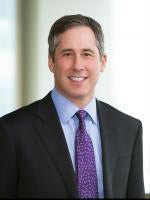On May 8, 2013, the Office of Inspector General (OIG) of the U.S. Department of Health and Human Services issued an updated bulletin titled, “Special Advisory Bulletin on the Effect of Exclusion from Participation in Federal Health Care Programs.” The updated bulletin replaces the previous bulletin issued by OIG in 1999 and offers substantial, useful guidance to providers regarding the scope and implications of exclusion, and best practices for avoiding liability in connection with individuals who have been excluded from participation in Federal health care programs. Beyond its guidance, the bulletin demonstrates a concerted effort on the part of the Administration and Congress to identify and eliminate waste, fraud, and abuse in the federal health care programs – one of the few health care issues that garners bipartisan support.
As Congress looks to control the growth of the Medicare and Medicaid programs, it continues to set its sights on enacting regulations to ensure that entitlement program funds are not spent inappropriately. Last month, a bipartisan group of Senate Finance Committee members – including Chairman Max Baucus (D-MT), Ranking Member Orin Hatch (R-UT), and others – released recommendations[1] on ways to improve federal efforts to combat waste, fraud, and abuse in the Medicare and Medicaid programs and promised further action to develop “a more detailed and refined list of administrative recommendations and potential legislative actions” in this area.
With respect to the practical advice contained in the bulletin, perhaps the most valuable piece is the straightforward instruction to providers on how they may utilize OIG’s List of Excluded Individuals and Entities (LEIE) to screen not only employees, but contractors, subcontractors, volunteers and other personnel as well, who may provide services or items payable by a Federal health care program. Although using the LEIE is not required by law, LEIE is the most reliable tool available to providers to conduct effective screening.
The LEIE, which includes a searchable database, is available on OIG’s website. OIG updates the LEIE monthly and, accordingly, advises that the best way to minimize potential liability in connection with an exclusion is to screen employees and others not only before they are hired, but on an ongoing monthly basis. While other lists exist that may provide information in regards to sanctions imposed upon a person, such as the National Practitioner Data Bank and the Health Care Integrity Protection Databank, OIG urges providers to rely on the LEIE as their primary source of information about exclusions, as the LEIE is directly maintained by OIG, contains more detailed information than any other database regarding exclusions, and is updated regularly.
The bulletin additionally notes that it is important for a provider to be knowledgeable about the extent of its potential liability relating to an exclusion. A provider should not restrict its concern only to excluded employees or prospective employees. Liability can be imposed, in the form of civil monetary penalties or assessments, on a provider that contracts with other excluded individuals and entities, such as temporary staffing agencies. Especially in light of providers’ increasing use of this kind of support, it is advisable for providers to extend their screening practices to those providing such support, assuming such support includes items or services that will be submitted for payment under a Federal health care program. Certain types of providers, such as imaging centers, should be cognizant of whether an ordering physician, such as a physician who orders an MRI, is excluded, due to the fact that the imaging center could be subject to liability in the event it furnishes or claims payment for services to a Federal health care program beneficiary ordered by an excluded physician. OIG recommends that such providers verify non-exclusion of the ordering physician at the point of service.
The bulletin further elaborates upon the potential reach of liability when an excluded person is involved in providing items or services: “A provider could be subject to CMP [civil monetary penalty] liability if an excluded person participates in any way in the furnishing of items or services that are payable by a Federal health care program. CMP liability would apply to the furnishing of all of the categories of items or services that are violations of an OIG exclusion, including direct patient care, indirect patient care, administrative and management services, and items or services furnished at the medical direction or on the prescription of an excluded person when the person furnishing the services either knows or should know of the exclusion.” Examples of indirect care include entering pharmacy information for pharmacy billing purposes or providing ambulance dispatch services.
A provider need not screen all employees, contractors or others with whom it has a relationship, however. OIG suggests the best strategy in determining whether or not to screen an individual is to, at the outset, assess the nature of services or items that such individual will provide and whether those services and items are directly or indirectly, in whole or in part, payable by a Federal health care program. If the answer is yes, OIG recommends screening such individual. In evaluating exposure to risk, OIG notes that “the risk of potential CMP liability is greatest for those persons that provide items or services integral to the provision of patient care because it is more likely that such items or services are payable by the Federal health care programs.”
Attorney Jeremy Shapiro-Barr also contributed to this article.
[1] A copy of the report is available at http://www.finance.senate.gov/



 />i
/>i
